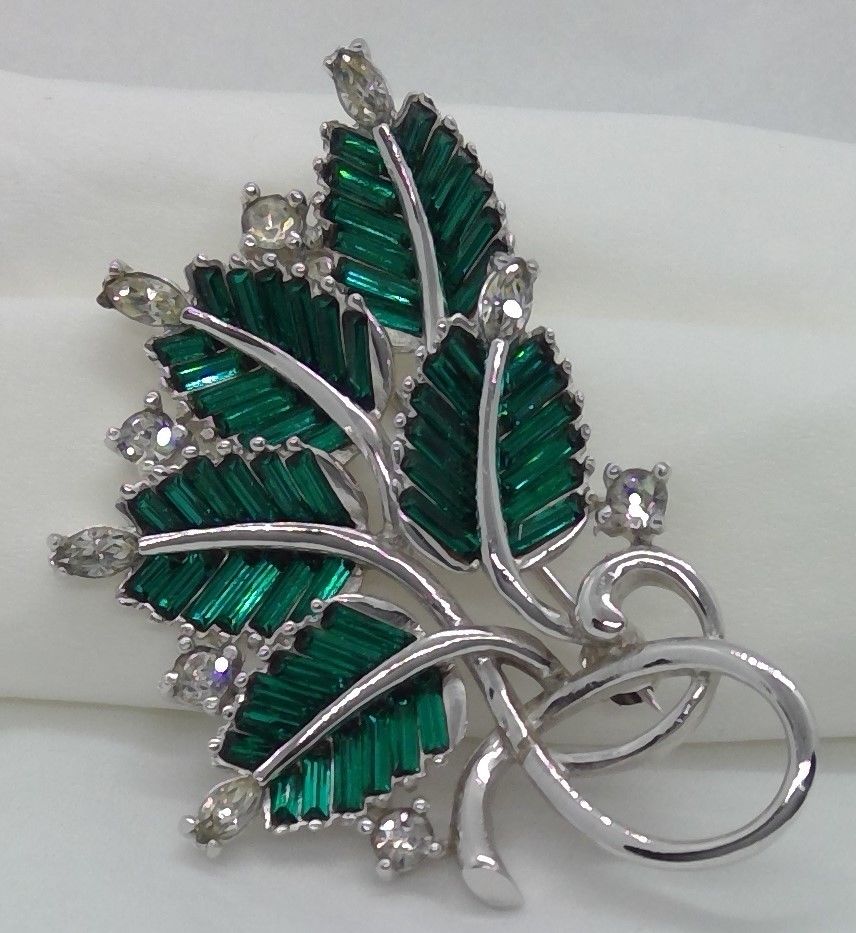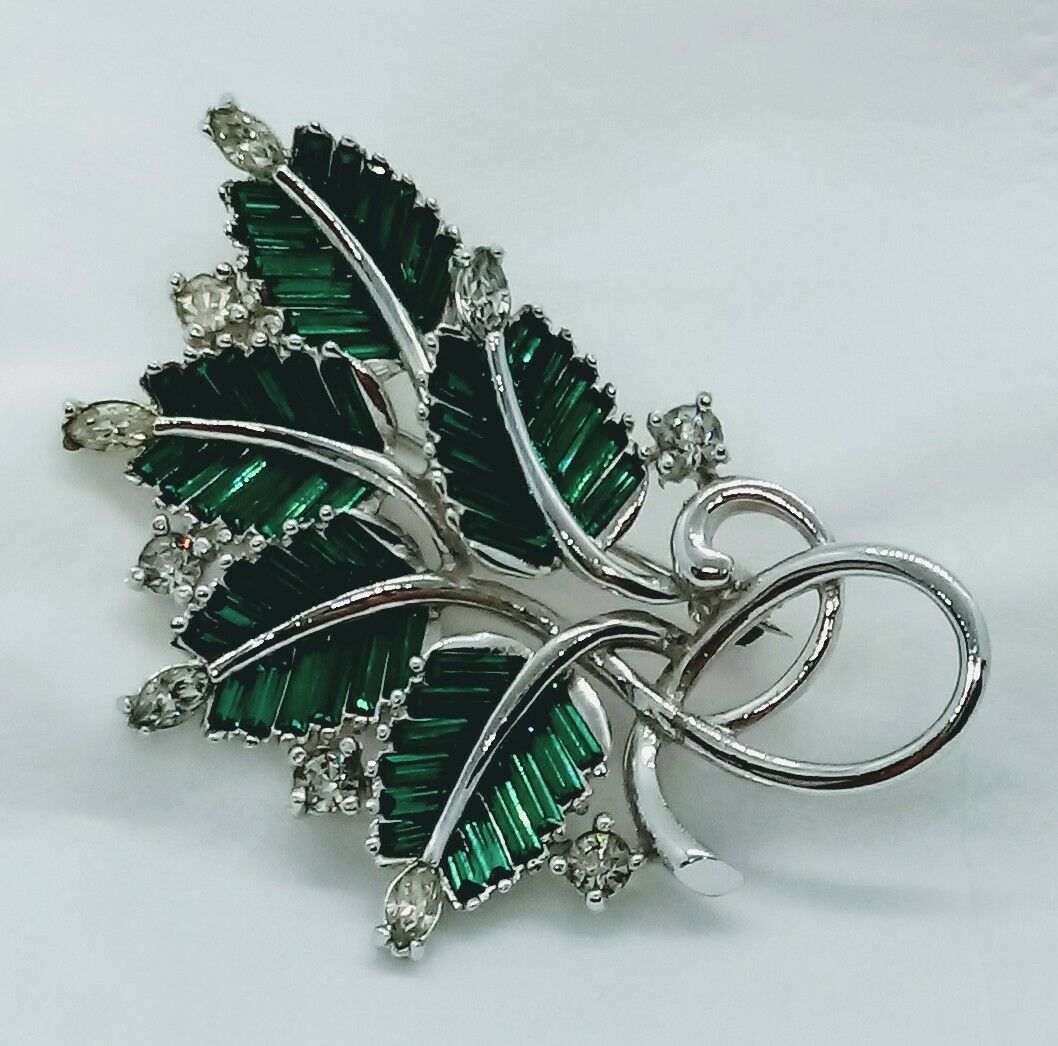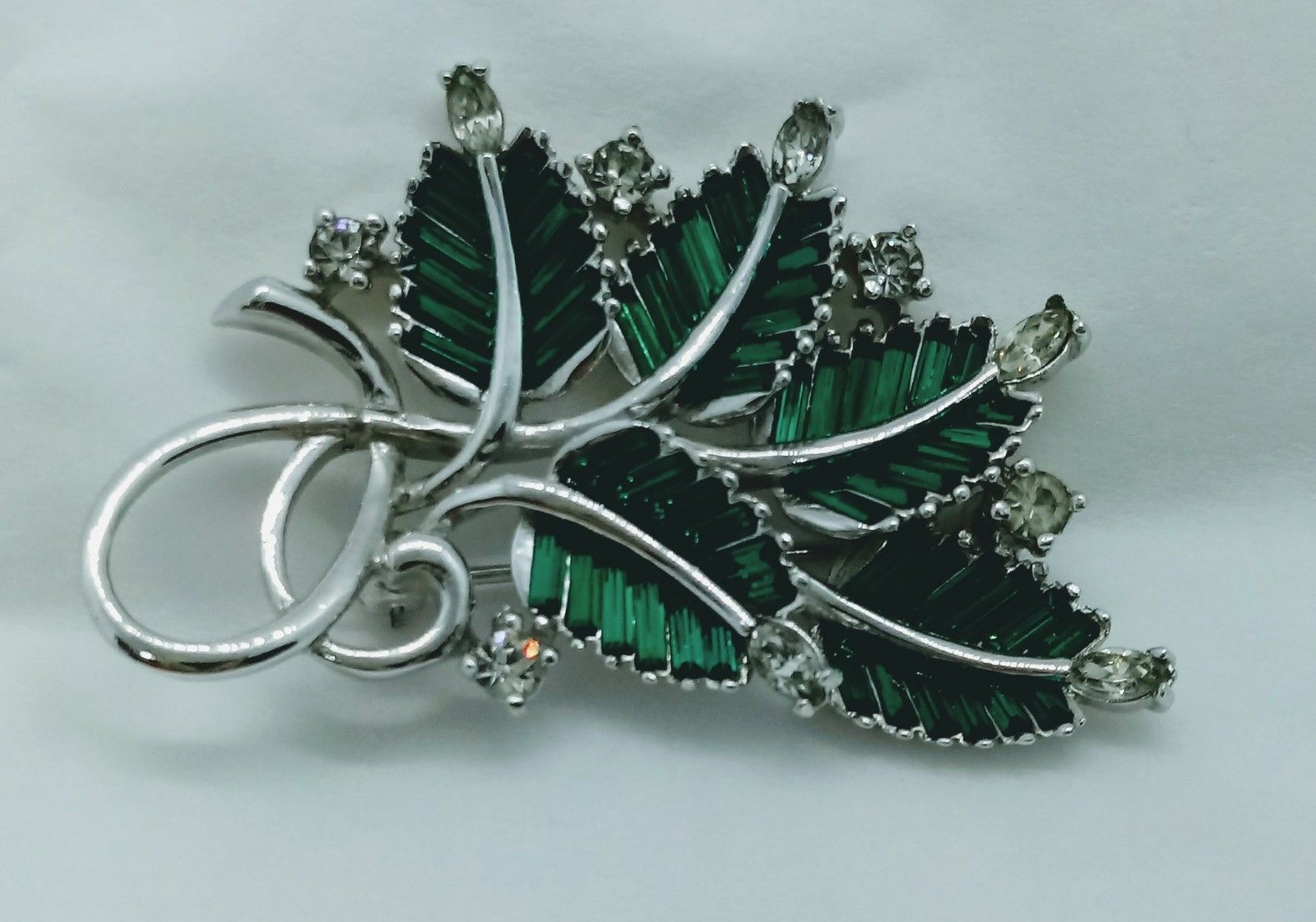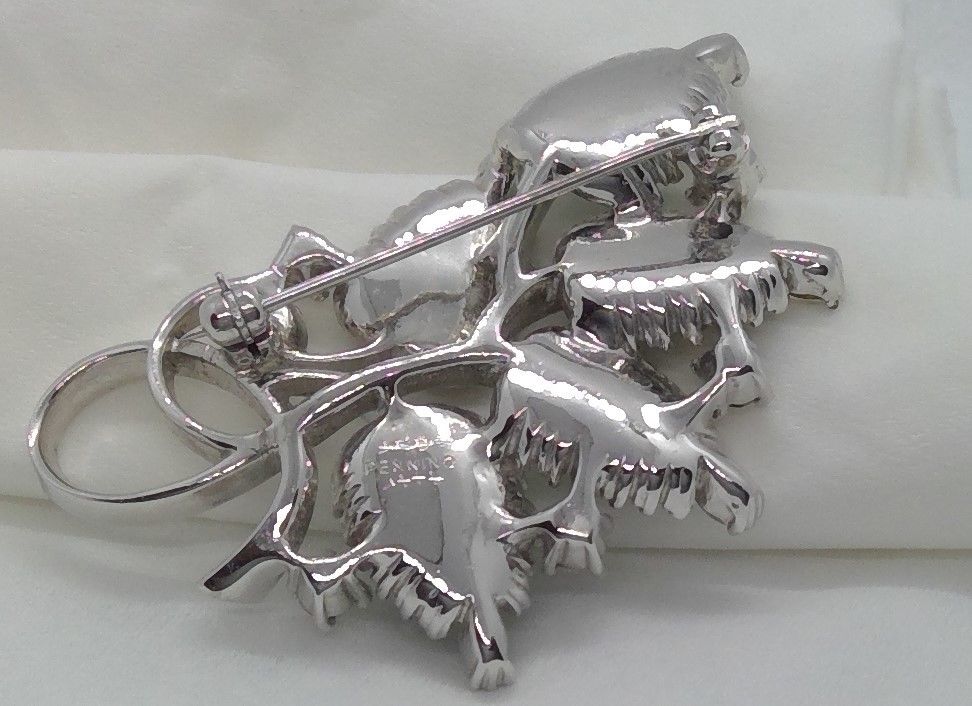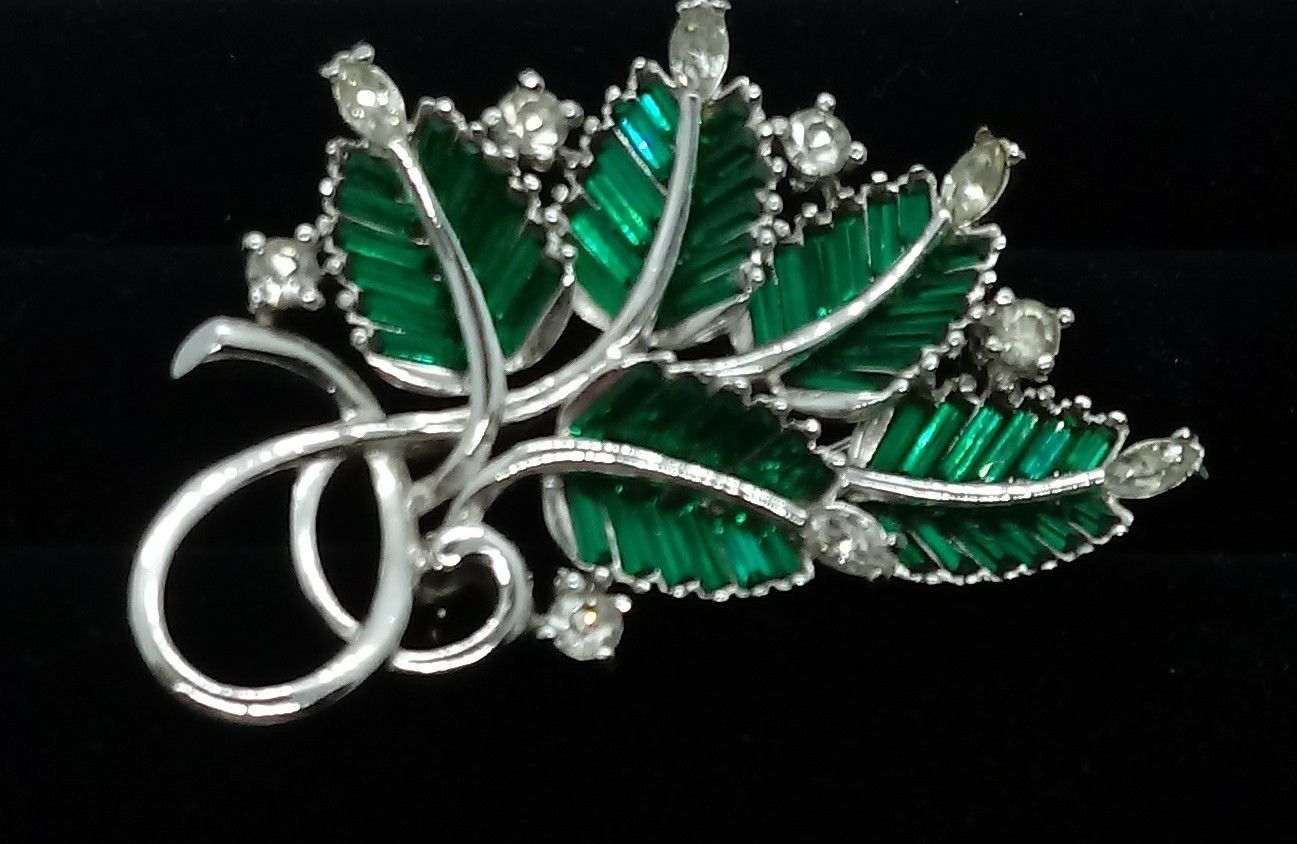
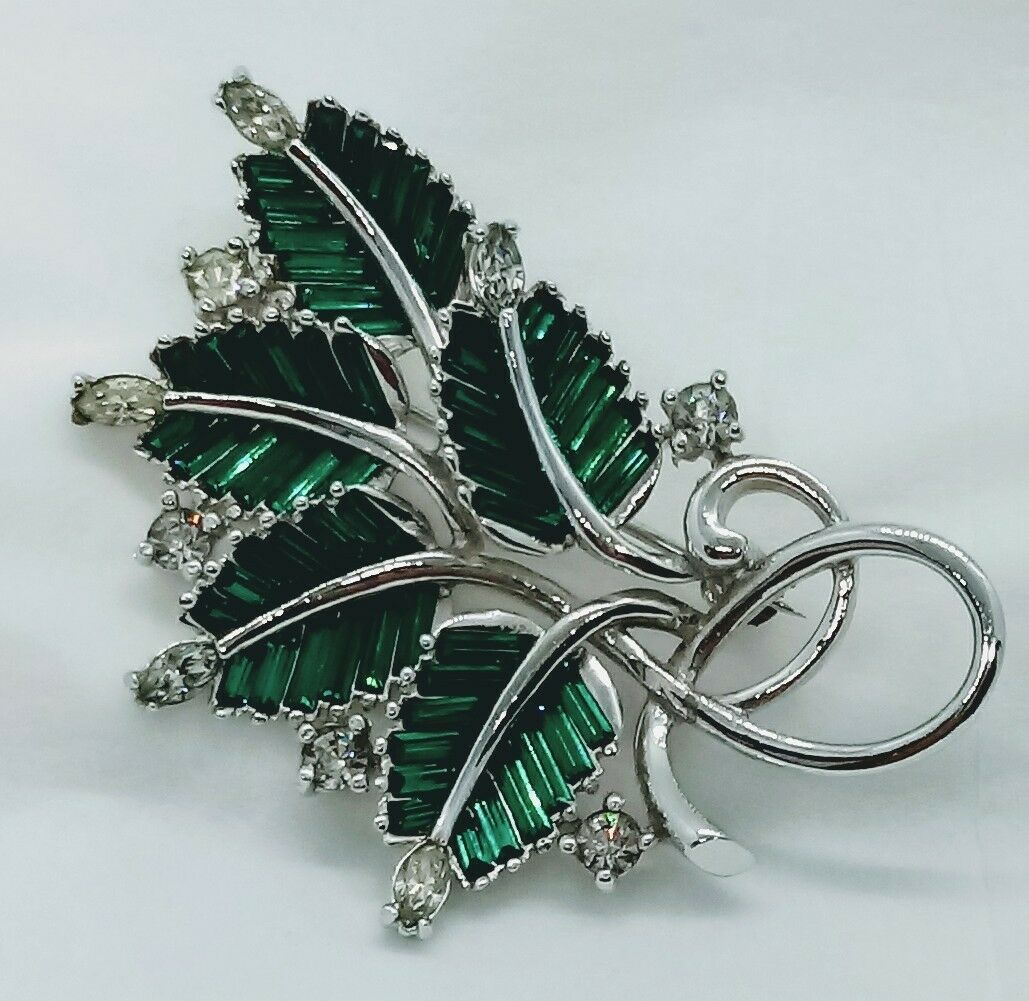
Vintage Stunning Signed Pennino Green and White Sparkling Rhinestone Brooch
2"-1.25"
Beautiful figural design, appearance of long stem white rose buds displayed within green fronds!
The well-respected firm in New York City from 1926-1966 were known for the exceptional quality of their designs and materials, and their intricate workmanship.
The company’s jewelry was very popular in the 1940s and is still considered one of the very best costume jewelry companies in America’s jewelry design history.
Pennino jewelry was not produced in great quantities which makes it harder to find. All pieces are highly collectible.
Their pieces feature high-end rhinestones set in rhodium- or gold-plated base metal, sterling silver, or vermeil sterling. Pennino jewelry was sold only in high-end department and jewelry stores. These Italian-born immigrants brought their talent, master goldsmith lineage, and pride in workmanship when they emigrated to the U.S. and started their business. Pennino pieces are hard-to-find and coveted.
Many of their designs echoed those of fine jewelry, and were often hard to distinguish from karat gold set with real gems.
The Pennino's excelled during the cocktail style jewelry movement of the late 1930's into the 1940's. The glitz and glamour of that time was perfect for the "real" look that much of their jewelry exhibited. As with other well known costume jewelry designers of that time, their jewelry was used in Hollywood productions and worn by many leading ladies.
The brothers worked as a team until illness and Frank's failing eyesight caused them to close the business in 1966. At that time almost all the Pennino molds were broken. A few, which are in poor condition, were retained as keepsakes by the family. Otto and Frank agonized over what to do with the molds for some time. They decided to destroy them because at the time there was no one from the family whom they personally trained to continue the business and protect the purity of their workmanship.
2 "-1.25" ¡Hermoso diseño figurativo, aspecto de cogollos de rosa de tallo largo que se muestran dentro de las frondas verdes! La reconocida firma en la ciudad de Nueva York de 1926 a 1966 era conocida por la calidad excepcional de sus diseños y materiales, y por su intrincada mano de obra. La joyería de la compañía era muy popular en la década de 1940 y aún es considerada una de las mejores compañías de bisutería en la historia del diseño de joyería en los Estados Unidos. La joyería Pennino no se fabricó en grandes cantidades, lo que hace que sea más difícil de encontrar. Todas las piezas son altamente coleccionables. Sus piezas cuentan con diamantes de imitación de gama alta engastados en metal base con baño de rodio u oro, plata de ley o plata vermeil. Las joyas de Pennino se vendieron solo en el departamento de alta gama y en las joyerías. Estos inmigrantes nacidos en Italia trajeron su talento, su maestro de orfebrería y su orgullo en la mano de obra cuando emigraron a los Estados Unidos y comenzaron su negocio. Las piezas de Pennino son difíciles de encontrar y codiciadas. Muchos de sus diseños hacían eco de esas joyas finas, y a menudo eran difíciles de distinguir del conjunto de oro de quilate con gemas reales. Los Pennino's sobresalieron durante el movimiento de joyería de estilo cóctel de finales de los años 1930 a los 1940. El brillo y el glamour de esa época eran perfectos para el aspecto "real" que exhibían gran parte de sus joyas. Al igual que con otros conocidos diseñadores de bisutería de esa época, sus joyas fueron usadas en producciones de Hollywood y usadas por muchas mujeres destacadas. Los hermanos trabajaron en equipo hasta que la enfermedad y la falta de visión de Frank hicieron que cerraran el negocio en 1966. En ese momento, casi todos los moldes de Pennino estaban rotos. Unos pocos, que están en malas condiciones, fueron retenidos como recuerdo por la familia. Otto y Frank se agonizaron sobre qué hacer con los moldes durante algún tiempo. Decidieron destruirlos porque en ese momento no había nadie de la familia a quien entrenaran personalmente para continuar el negocio y proteger la pureza de su mano de obra.

